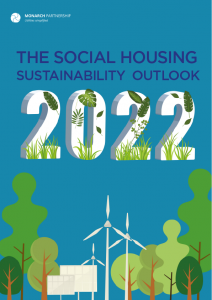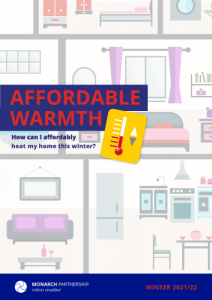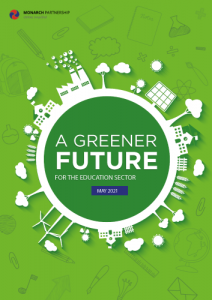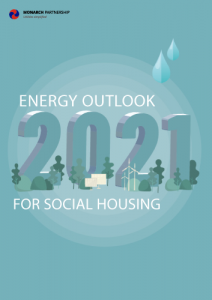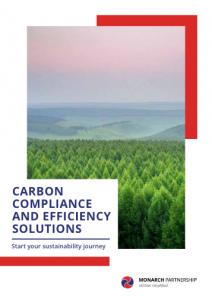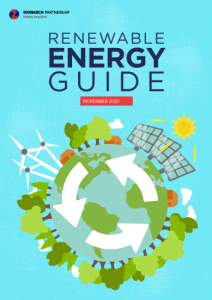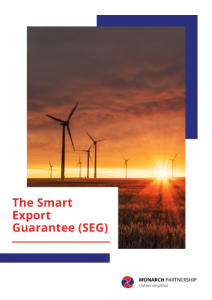The government’s recently released sustainable warmth strategy aims to tackle fuel poverty and protect the vulnerable. We take a look at the government’s plan and what it means for housing associations.
The UK’s energy landscape has changed significantly since a fuel poverty target was first introduced into legislation in 2014. New technology, smarter infrastructure and ambitious carbon targets have made the energy sector more sustainable and transparent than ever.
Unfortunately, this evolution has collided with the catastrophic impact of Covid-19 leaving many struggling to stay afloat over the past year. A recent survey found that since the first lockdown began, more than a third of UK households have not managed to put aside any money. And more than half are worried about running out of savings.
For families, the situation is far worse. More than a quarter of those with children said they had struggled to pay bills in the past week, and 10% said if lockdown restrictions continue beyond April, they may not be able to pay their mortgage or rent.
This financial stress, combined with months of isolation and uncertainty, has also had a serious impact on people’s mental health. More than two-thirds of adults in the UK report feeling anxious about the effect Covid-19 is having on their life. Especially hard hit are those already prone to higher anxiety and depression. This includes people in lower income households, living with children, and in urban areas. Making protection and support for these vulnerable groups more essential than ever.
A new fuel poverty strategy for England
Fortunately, the new fuel poverty strategy released by BEIS aims to ensure all households have access to sustainable and cost-efficient warmth. These plans are expected to reduce energy bills for “hundreds of thousands of households” in England. Providing low income families with savings of as much as £500 a year.
Below we discuss the key points set out in the new strategy.
1. Invest in social housing
One of the key points set out in the strategy is a plan to invest a further £60 million to retrofit social housing and £150 million in the Home Upgrade Grant.
This focus on energy efficiency will have many benefits for housing associations and their tenants. These include better insulation, newer appliances, and smarter metering. Aimed at helping those struggling with fuel poverty and improve tenant’s wellbeing in the winter months. It also ensures less vulnerability to fluctuations in the energy market and provides security in times of uncertainty.
2. Expand the Energy Company Obligation (ECO)
The Energy Company Obligation (ECO) was put in place to help reduce carbon emissions and tackle fuel poverty. The scheme requires larger domestic energy suppliers to install heating, insulation or other energy efficiency measures in low income and fuel poor households.
The new strategy sets out plans to extend the ECO scheme until 2026, boosting its value from £640 million to £1 billion a year.
The current scheme, called ECO3, runs until 31 March 2022 and is estimated to save low income households up to £300 a year. ECO4 is expected to save households even more due to the focus on multiple measures.
3. Invest in energy efficiency and low carbon heating
The Green Homes Grant will get a £2 billion boost to help with investing in energy efficiency in households. This will include up to £10,000 per low income household to install efficient and low carbon heating measures.
4. Extend the Warm Home Discount
The Warm Home Discount scheme requires energy companies to provide a £140 bill rebate for low income households with high energy bills. The government plans to extend this scheme to a further 750,000 homes. Providing relief to a total of 2.7 million households.
5. Improve energy efficiency standards
The strategy sets out plans to drive over £10 billion of investment in energy efficiency through regulatory obligations in the Private Rented Sector. This also includes leading the way in improved energy efficiency standards through the Future Homes Standard, and the Decent Homes Standard. The proposed Minimum Energy Efficiency Standards are expected to result in bills savings of £220 for private renters.
Who does this affect?
Any household living on a low income in a home that cannot be kept warm at a reasonable cost faces fuel poverty. While few self-identify as being fuel poor, there are many who fall into this category, especially in the winter months. This issue has only been exasperated by the economic impact of Covid-19.
But the benefits of this sustainable warmth strategy will extend beyond the vulnerable. In fact, these schemes and standards will help to reduce costs for most, if not all, energy consumers. Though most of the plans are aimed at helping people in low income households first, improved energy efficiency standards will boost savings for thousands of households across England.
As the UK transitions to net zero, housing associations will have to stay ahead of the curve. Our latest report ‘2021 energy outlook for social housing’ looks at what is forecast to change for social housing this year and how they can benefit.
How is Monarch helping to fight fuel poverty?
At Monarch, we work with over 200 housing associations and recognise the unique challenges they face in keeping costs and carbon emissions low. That’s why we recommend outsourcing your energy admin to a specialist. Enabling you to free up valuable time and reduce stress. In times of uncertainty and financial fluctuation, taking control of a large cost like energy can make a huge difference.
Our goal is to future-proof your organisation and provide tenants with the comfort and wellbeing they deserve. We find hidden financial savings through auditing, monitoring, and optimising your energy management. Simplifying sustainability services and carbon compliance along the way. If you are interested in preparing your business for a green future, contact us at Monarch today.








